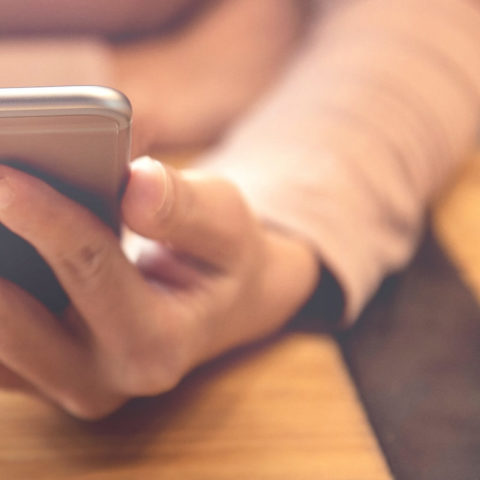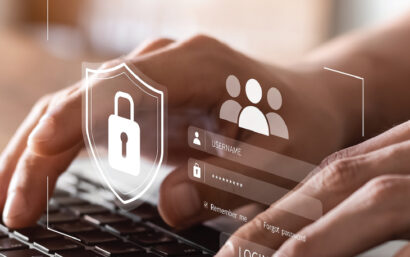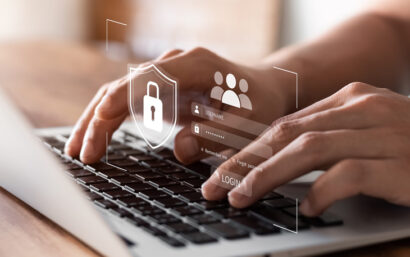Got a question about your SouthPoint FCU account or online safety? We’ve put together a long list of the most frequently asked questions below. Still don’t see your question? Contact Us
Frequently Asked Questions
Depending on the circumstances and your state’s laws, you may be held responsible for the entire amount of the fraudulent check that you cash at the bank or deposit into your account. If your bank credited your account, it can later reverse the funds if the check is found to be fraudulent.
This could be a Check Overpayment/Money Order Scam. It’s an example of why you should always exercise caution when receiving a check from someone you don’t know.
As the payee, it’s up to you to pursue the maker of the check. If you think you have been targeted by a scam, you should file a complaint with the Federal Trade Commission (FTC) or by calling 1-877-382-4357.
Depending on the circumstances and your state’s laws, you may be held responsible for the entire amount of the fraudulent check that you cash at the bank or deposit into your account.
If your bank gave you credit for a check that is found to be fraudulent, the bank can reverse the funds from your account. As the payee of the fraudulent check, you must pursue the maker of the check for restitution.
If you think you have been targeted by a scam, you should file a complaint with the Federal Trade Commission (FTC) by calling 1-877-382-4357.
Even though a bank pays over a forged endorsement, it is the account holder’s responsibility to discover the problem and notify the bank.
There is very little the bank can do to protect you from the actions of your employees. It is your responsibility to have separation of duties—for example, the same person should never make the deposits and balance the monthly statements. If you have an account with multiple forgeries (e.g., stolen checks), you should consider closing the account and be sure to file a police report.
Whether the bank is liable for the customer’s loss depends on the specific circumstances of the case. Generally, a bank is liable for accepting a check that has been forged, altered, or improperly endorsed. However, if the bank can prove two things—that it accepted the check in good faith and exercised ordinary care and diligence in handling the transaction—it may not be liable.
If your actions—the way the check or checkbook was handled, issued, completed, or made payable—contributed to the making of the forgery, you may be at least partially liable. Generally, the bank will require you to complete an affidavit. It may also request that you file a police report.
National banks are responsible for knowing their customer’s signature, but they do not manually process checks. Each day a huge volume of checks is processed through the clearinghouse for payment. Checks are processed by machines that read the MICR-encoded routing number.
You are responsible for reviewing your periodic statement. Generally, if there were multiple problem transactions from the same person, you have 30 days from the statement date to find the error and inform the bank.
Depending on the circumstances and your State’s laws, you may be held responsible for the entire amount of the fraudulent check that you cash at the bank or deposit into your account.
If your bank gave you credit for a check that is found to be fraudulent, the bank can reverse the funds from your account. As the payee of the fraudulent check, you must pursue the maker of the check for restitution.
Generally, national banks may close deposit accounts at any time and for any reason (e.g., inactivity or low usage). Federal banking laws and regulations do not address the closing of deposit accounts by banks. Also, the bank may freeze the transactions in the process of closing your account.
No. Depending on the circumstances and your state’s laws, you may be held responsible for the entire amount of a fraudulent check that you cash or deposit into your account.
For information about fraudulent cashier’s checks, read the OCC Consumer Advisory on Avoiding Cashier’s Check Fraud.
- Use passwords on all accounts and your PC that are difficult to guess…don’t use the same password for everything.
- Don’t use passwords that relate to family names, birth dates, your SSN, addresses or your job.
- Change your passwords frequently.
- Do not keep passwords on your person and don’t write them on your debit/ATM Cards, or on notes attached to your computer or desk.
- Never lend your password to anyone.
- Don’t give private information to anyone unless you are positive who the person is and that they have a legitimate need to know.
- Shred or tear up your charge receipts, credit card solicitations, expired cards, statements, check, outdated documents and other sensitive personal information.
- Carry only the identification and bank/credit cards you actually need.
- Review your monthly statement promptly.
- Secure confidential information at home.
- Call your credit card company immediately if your new card has not arrived.
- Destroy and cancel old, unwanted or unused credit cards. Cutting them up is not enough.
- Guard your mail.
- Be absolutely positive of the identity of anyone telephoning or e-mailing you to request personal information.
- Be especially cautious of anyone claiming to be a bank or law enforcement official. Arrange to call the person, using a phone number you can verify in the phone book.
- Do not give out personal data over the phone, through the mail or on the Internet unless you have initiated the contact.
- Periodically check your credit report to see if there are loans or credit cards outstanding that you don’t know about.
- Guard your Social Security Number. Never carry it in your wallet or write it on checks.
- Give your Social Security Number only when absolutely necessary. Ask to use other identifiers when possible.
- Be careful of who is around you at ATMs. “Shoulder surfers” can get your PIN number and gain access to your account.
- Do not allow your credit card out of your sight when paying for products or services.
- Do not leave your wallet/purse/checkbook in your car.
- If possible, avoid using ATMs during hours of darkness. If you must do so, make sure it is well lit and try to have another person accompany you.
- When possible, try to choose an ATM that is not surrounded by foliage and is well trafficked.
- Thoroughly observe the area around the ATM.
- Be cautious of anyone who engages you in conversation as you approach the ATM, while you are using it, or immediately thereafter.
- Be suspicious of anyone who closely observes you while you are using the ATM: Protect your PIN from view.
- Spend as little time at the ATM as possible.
- Don’t count or needlessly expose cash at the ATM.
- Don’t leave your receipt at the ATM.
- Don’t reveal your PIN to anyone in person or over the telephone for any reason, even if the individual represents him or herself as a bank employee.
- Guard your checkbook and checks.
- Never give your account and routing numbers to people you do not know, especially to anyone over the telephone even if the individual represents him or herself as a bank employee.
- Guard your deposit slips. Never use your deposit slip for “scrap” paper and then give it to someone.
- Properly store or dispose of canceled checks.
- If your checkbook is lost or stolen, immediately inform your financial institution.
- When traveling for a period of time, it is wise to leave your checkbook at home, locked away, and purchase a travel card or use your debit card.
- Write your checks using ink pens…never pencil.
- Write the payee name and the dollar amount in both numbers and letters, as far to the left in the allotted space and draw a line thru the unused space to the right of the letters and numbers to prevent additions.
- When writing the payee name on the “Pay to the Order of” line, make sure the name is spelled out so it cannot be altered.
- Promptly balance or reconcile your checkbook register with your monthly bank statements.
Report the scam. You should call your financial institution if you are suspicious of an email, letter or phone call that claims to be from them or if you think someone may have access to your accounts. They can advise you on what to do next. Make sure the telephone number you use is from the phone book or your account statement, ATM card or credit card.
Protect your computer. If you were using your computer when you got scammed, it is possible that a virus or other malicious software may have infected your computer. Run a full system check using reliable security software. If you do not have security software (such as virus scanners) installed on your computer, a computer professional can help.
Change your passwords. Scammers may have also gained access to your online passwords. Change your passwords using a secure computer.
Genuine financial institutions and organizations will NOT contact you by email to request confidential and personal information. If a financial institution or organization sends you a genuine request for some information, they should address you by name and not refer to you as ‘account holder’ or ‘customer’. A genuine financial institution or organization should take good care to ensure that any email or message they send to you does not contain typing errors and grammatical mistakes.
There are things you can do if you receive a suspicious message. If you receive an email, phone call or other message supposedly from your bank or another organization requesting your personal details, delete the message or hang up your phone. Even if the email or message urges you to act quickly, do not panic—this is just a trick to make you respond immediately without giving you a chance to talk to others or to check if it is a scam.
If you receive a suspicious call or message that you think might be genuine, do not divulge your details until you have made some extra checks to satisfy yourself that it is not a scam. Call your bank or the company yourself to find out if it is a genuine message but never use the number provided in the email or message—a scammer will not give you the correct number!
Debit and credit card compromises occur when unauthorized individuals gain access to your payment card information. This typically means that it’s likely after using your card with a merchant, your card number, expiration date and PIN may have been manually or electronically captured for the purpose of creating a functional counterfeit payment card.
We monitor your account 24/7 for fraud, but we also recommend that you review your account and report any suspicious or unauthorized transaction to us immediately. Online Banking, Call24 and Mobile Banking are great ways to monitor your checking account activity, and you won’t need to wait for a monthly statement.
We are notified by Visa and our card processor of compromises. We take every compromise seriously. In each case, we evaluate the information and determine how to proceed.
We receive notice of potentially compromised payment cards from various sources and tools.
No one can predict when their debit or credit card will be compromised. We strongly urge our members to engage in online and mobile banking practices to increase overall awareness of the available balances in their accounts. If there is ever a transaction you do not recognize, please contact us immediately and we will be glad to assist you.
You should contact the merchant(s) immediately upon receipt of your replacement card, and provide them with the new card number and expiration date.
Not necessarily, since each member has a unique card number. If their card has also been compromised, they will receive a similar notification.
The information encoded on your debit or credit card pertains to the card number and expiration date. Confidential information such as Social Security numbers, checking account numbers, driver’s license numbers, addresses and dates of birth are not stored on the card.





